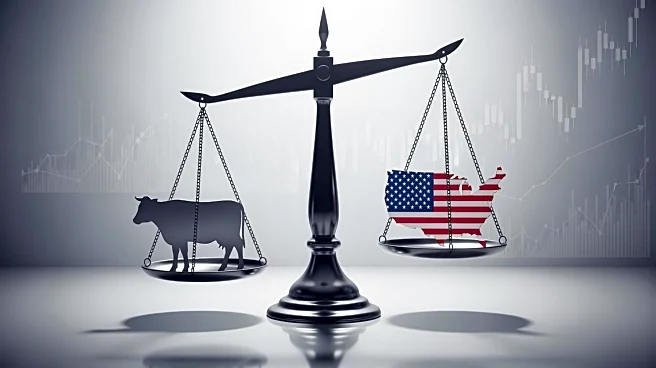What's Happening?
Agricultural economist Glynn Tonsor from Kansas State University has discussed the potential implications of President Trump's plan to increase Argentine beef imports on U.S. producers and consumers. Tonsor highlighted
that the introduction of more Argentine beef into the U.S. market could lead to increased competition for domestic beef producers, potentially affecting their market share and pricing strategies. The plan aims to diversify beef sources and potentially lower consumer prices, but it raises concerns about the impact on local producers who may face challenges in maintaining profitability.
Why It's Important?
The decision to import more Argentine beef is significant as it could reshape the dynamics of the U.S. beef industry. Domestic producers might experience pressure to reduce prices or improve efficiency to compete with imported beef, which could lead to changes in production practices or financial strain. Consumers might benefit from lower prices and increased variety, but the long-term effects on the domestic industry could include job losses or shifts in market strategies. The policy reflects broader trade and economic strategies under President Trump's administration, emphasizing international trade relations and consumer benefits.
What's Next?
Stakeholders in the U.S. beef industry are likely to closely monitor the implementation of this import plan and its effects on market conditions. Producers may seek support from government policies to mitigate potential negative impacts, such as subsidies or trade protections. Consumer advocacy groups might push for transparency in labeling and sourcing to ensure quality standards are maintained. The administration may face pressure to balance trade benefits with domestic industry support, potentially leading to adjustments in trade agreements or import regulations.









